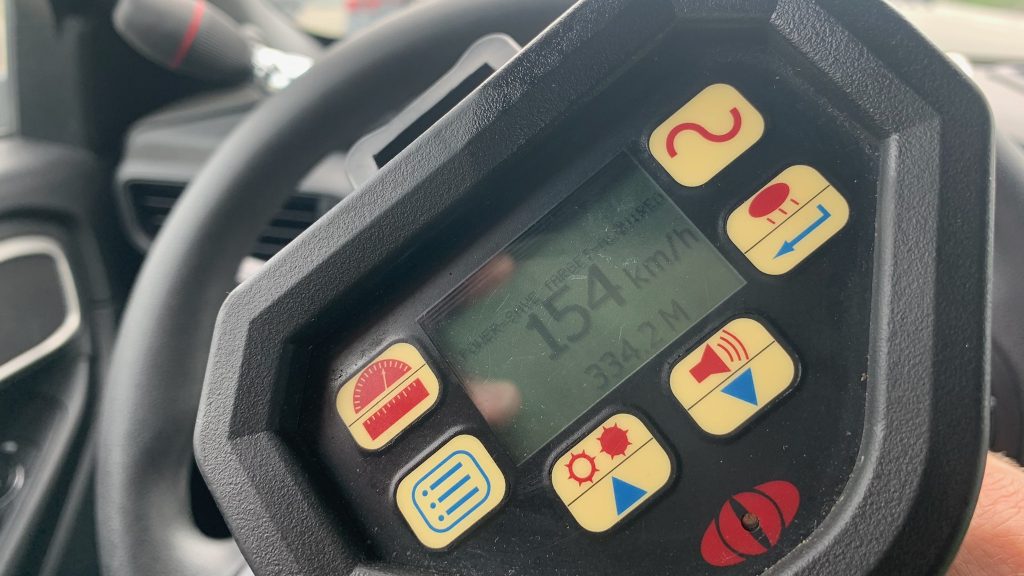Q&A: Hockey Canada chair Hugh L. Fraser on importance of diversity, inclusion and safety
Posted Jan 6, 2023 09:00:00 PM.
Hugh L. Fraser is a former Olympian who became a lawyer, then became an Ontario judge, has two sons who played professional hockey and served on the Dubin inquiry into doping in Canadian sports. With that impressive law and sports background, it’s safe to say observers feel he is qualified to be the new chair of the board for troubled Hockey Canada.
The nomination of Fraser and his fellow board members was accepted by the Hockey Canada members on Dec. 17. We talked with Fraser, 70, about the challenges Hockey Canada faces, his background and why he took the job.
Note: This interview has been edited for clarity and length.
Sportsnet: Mr. Fraser, thank you for taking the time to do this. My first question: Why did you want this role?
Hugh L. Fraser: Yeah, and it's a question I have probably asked myself a few times. No, I think the best answer is that … I would say as a fan or someone who follows hockey passionately like many other Canadians, there's that reason. I did have two boys who played hockey. When I was quite young, as a young Canadian who had emigrated to Canada, I wanted to play hockey because that's what all the other boys in the neighbourhood were doing and I wasn't able to. My parents just couldn't afford it, it was impossible. So, when I had children and my boys were able to play and they got involved, I was there and volunteering in arenas and so on, and one boy was able to make it all the way to the NHL, and he's still working in that capacity. So, when you look at that kind of connection and then you see the sport, and Hockey Canada in particular, going through some challenging times, I just felt if there's anything I can do to assist, then maybe it's time to get off the sidelines and try to help out.
SN: Did they come to you or did you go to them?
HLF: They came to me.
SN: Can you walk me through the process of how that happened?
HLF: Initially, I was called or contacted by the chair of the nominating committee. Obviously, not a call I was expecting. I probably had my opinion like many other Canadians, and then we had this call and asking if I had any interest in getting involved and becoming part of the solution. And that was followed up by a couple of subsequent calls and then I said yes, I'll put my name in and see where it goes.
SN: You mentioned your sons who play hockey, and one of them who still does, as in former NHLer Mark, of course. As a hockey parent, what was your reaction when you heard fees had been used by Hockey Canada to settle sexual assault claims?
HLF: Yes, by nature, I personally would want to know more about that. I can say that at first blush that that was something that makes you sit up and take notice. Those are the types of things that make you want to explore further, just to see what the full story is. And, of course, that's now part of what I'm doing in accordance with the mandate.
SN: Where do you think that Hockey Canada went wrong?
HLF: I haven't spent a lot of time looking backwards because we've had so much work to do just trying to look at it. We've heard the word “transparency” used a great deal. And if one can point to one area, it would appear to me that more transparency would have been a very positive thing and more beneficial and the situation potentially might have unfolded differently. It's hard to say, but that's one of the things that we are certainly focused on. … We're going to make sure that we are operating as transparent fashion as possible.
SN: How does your experience make you a good fit for this role?
HLF: My experience … if there was one thing I could point to is that a good part of my adult life has been spent with the recognition that we need processes that must be fair to everyone, that must apply to everyone, that there are no exceptions. In my career, it's the law: if you think of it with the blinders and so on, it doesn't matter who was before you, deal with them fairly. But everybody's subject to the same rules, conduct. And as a sports arbitrator, I apply the very same approach. It's not a pleasant thing when you're dealing with arbitration where you might have an Olympic athlete whose career could be perhaps coming to an end because, for example, of a doping situation. But my view is that you have to have a process that applies to everyone. And I think there is a carryover to what I'm doing here now because that's the type of thing that we want to ensure is part of this culture with this organization.
SN: What do you hope to accomplish in this role? What would look like success to you?
HLF: Success would be the appreciation by those who are looking at us from the outside that there has been a change in the approach, that perhaps the organization does have a more humble approach, that we have an organization that's willing to listen and reach out more to the various stakeholders and partners to make sure that we're more inclusive. That would be some of our main goals. Inclusivity, obviously, affordability. But safer as well. Safe in all aspects, safer in terms of use, and so on, but just safer in terms of a more welcoming environment. The nature of our country is changing, and we want to make sure that hockey is something that everyone feels they can participate in and feel welcome.
SN: Could you share some of the ideas you have in terms of a vision for Hockey Canada?
HLF: Well, one of the areas that I'm quite familiar with, and I've done a lot of work in, is this whole area of code of conduct. It falls under the SafeSport, and I've also done a lot of work with diversity, inclusivity. So, those are two areas in particular that I think would be part of my focus and goal is having a robust, safe sport. Having better policies is another key area and we think we're definitely going to have that implemented with the roadmap that the Cromwell report has provided. Much better policies on the governance side, I think we'll see some significant changes and governance just in terms of more robust, clear, well-defined policies in a number of areas.
SN: How is the search going for a new CEO?
HLF: That's in the very early stages. Again, we have some individuals who are well-qualified to assist in that area, but we're going to be using the expertise of an executive research firm. We're just starting the process now of moving towards identifying the firm that we’ll work with, working with the criteria, job description and so on. So, obviously, we want to be moving on that with as much speed as is appropriate.
SN: So, it's safe to say the search hasn't started yet, but you're in the process of getting the search started.
HLF: Exactly, exactly. That's it. Yeah, that's probably the most accurate way of putting it: the actual search hasn’t started, but we're putting in place the process so that the search itself can start very quickly.
SN: What kind of qualities will the ideal candidate have?
HLF: The ideal candidate has to share the vision that we have that the organization must be committed to accountability and transparency, as well as … understand the importance of equality, equal treatment. We believe that there'll be a lot of qualified people in terms of people with the kind of experience that one would want for this position. But as important as the vision is that commitment to it, to that openness, to the transparency. Too, somebody who has the capacity to be a good listener, who would not be afraid to definitely consider the input that's from members as well as the many partners who already understands, really wants to help to be part of that solution.
SN: Tell me about the board members.
HLF: Very excited because we've heard the term “governance” used a great deal and we have some excellent individuals with a lot of experience on the governance side. We have individuals with experience on the financial side, accounting, auditing. We have individuals who worked closely on the SafeSport aspect. We've got individuals who have been involved in communications. So, I think really, I can see all of those key areas have been people who with expertise, but we've also learned over the 30, probably almost 35 hours now that we've already met is that though there is definitely diversity of thought, we all share the same determination and the same desire for change.
So, when you take that and you blend it with all the various skills, I think that is the proper recipe. And I think we're all good listeners. Nobody on that board is shy about making their positions known or contributing. But we have an amazing collegiality already established when you consider how new this board is, I mean, none of us have ever really worked together. Most of us didn't even know who we were three weeks ago, and yet, we're really coming together very quickly, and that's quite important, quite critical, considering the timeframe that we're working with.
SN: As a former Olympian, a former athlete, how can you relate to some of the challenges that young athletes face these days and how do you hope to help them?
HLF: That's one of the things that would be part of our goal as well, as we tend to be focused a great deal on the higher level, and I've been fortunate to reach some of those levels as have two of my children. But we have to remember that the vast majority of people in our sport are at the grassroots level, and everyone started at that level.
One of the things that help remind me of what this is all about: I came across a picture the other day. One of my guys is in a dressing room, I think at a stage where he probably couldn't tie his own skates. You think about the joy that those kids have of going out there on the ice on a Saturday morning. We want to make sure that generation, that the kids and the ones beyond that feel that it's something that should be still fun, it should be safe. It should not be a sport that you're ashamed to be involved in. It's healthy, and there's lifetime friendships, there's so many benefits that accrue that we want to work to bring that back, if possible, and I think with some of the changes that we hope to see in place, I think it is a realistic goal.








